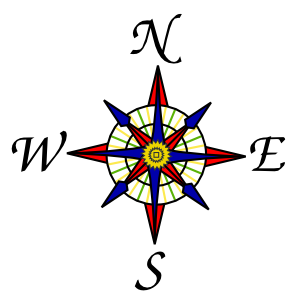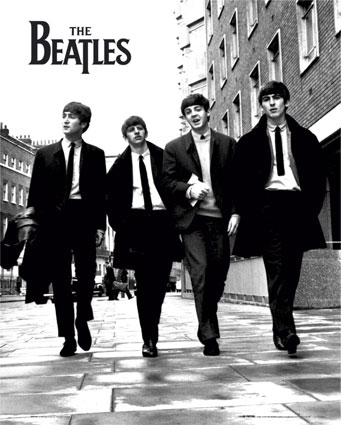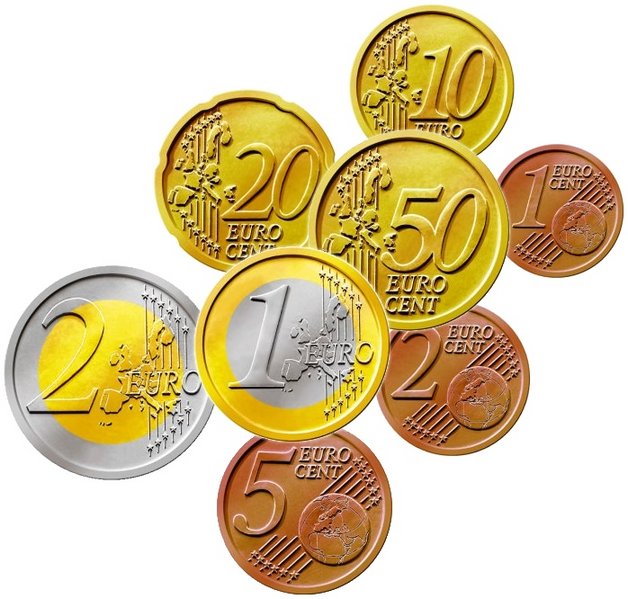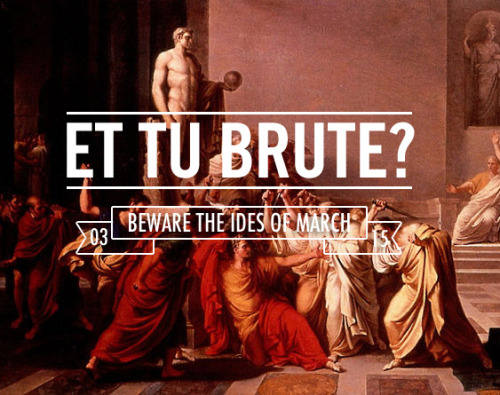More about capital letters
 n this second of two parts
about the proper use of capital letters, I'll be listing several categories
where the question of capitalization applies. I wanted to start off with a quiz
just to help you get a better idea of how strong (or weak) you are on capitals,
but the post already is too long.
n this second of two parts
about the proper use of capital letters, I'll be listing several categories
where the question of capitalization applies. I wanted to start off with a quiz
just to help you get a better idea of how strong (or weak) you are on capitals,
but the post already is too long.Instead, we'll move right into the categories, listed in no particular order. It is not an exhaustive list, and I'm certain you can think of many other situations where the question looms at to whether or not to capitalize. But we have to stop somewhere, so these are the categories I've chosen to highlight. My final source for resolving disputes or questions
is  The Associated Press
Stylebook, but I'm writing from memory and not trying to copy anything directly
from the AP Stylebook unless clearly indicated. (See my previous blog entry, which
printed a large portion of AP’s entry on capitalization, especially on what
should be considered a proper noun.) I've selected most of the categories because
they are the most common sources of errors in stories I have
edited. See my previous post for some other common errors.
The Associated Press
Stylebook, but I'm writing from memory and not trying to copy anything directly
from the AP Stylebook unless clearly indicated. (See my previous blog entry, which
printed a large portion of AP’s entry on capitalization, especially on what
should be considered a proper noun.) I've selected most of the categories because
they are the most common sources of errors in stories I have
edited. See my previous post for some other common errors.
 The Associated Press
Stylebook, but I'm writing from memory and not trying to copy anything directly
from the AP Stylebook unless clearly indicated. (See my previous blog entry, which
printed a large portion of AP’s entry on capitalization, especially on what
should be considered a proper noun.) I've selected most of the categories because
they are the most common sources of errors in stories I have
edited. See my previous post for some other common errors.
The Associated Press
Stylebook, but I'm writing from memory and not trying to copy anything directly
from the AP Stylebook unless clearly indicated. (See my previous blog entry, which
printed a large portion of AP’s entry on capitalization, especially on what
should be considered a proper noun.) I've selected most of the categories because
they are the most common sources of errors in stories I have
edited. See my previous post for some other common errors.
magazine – Unless magazine is formally part of the
periodical's title (and 95% of the time it is NOT), magazine, contrary to
extremely common practice, is lowercased. For example, It's Time magazine,
Forbes magazine, InStyle magazine, Playboy magazine, etc. But, the AP Stylebook
reminds us, it would be ![[harpers_1919_06_c.jpg]](https://blogger.googleusercontent.com/img/b/R29vZ2xl/AVvXsEjUYinAdgLj6F1oYEi9tCu8vSCbdQemssHe0bYss0gLTfgZgflHiRWDb-CDMmgjHuZp9s214ApFkuSdY1UBOS6S6Xp2q9kqWLzzi-KNwxOM8Xgr4fMj0lyMRfSK8NFNS2qexSg7RiK10r_q/s1600/harpers_1919_06_c.jpg) Harper's Magazine.
Harper's Magazine.
![[harpers_1919_06_c.jpg]](https://blogger.googleusercontent.com/img/b/R29vZ2xl/AVvXsEjUYinAdgLj6F1oYEi9tCu8vSCbdQemssHe0bYss0gLTfgZgflHiRWDb-CDMmgjHuZp9s214ApFkuSdY1UBOS6S6Xp2q9kqWLzzi-KNwxOM8Xgr4fMj0lyMRfSK8NFNS2qexSg7RiK10r_q/s1600/harpers_1919_06_c.jpg) Harper's Magazine.
Harper's Magazine.
I'm not sure I trust this as the way to determine whether to
capitalize magazine or not, but one newspaper's internal stylebook says to use
this as a guideline: If you don't see the word magazine printed clearly on the
cover with the title (as you can see with the Harper's cover above), then it's NOT part of the official title and should be
lowercased. So how do we know which magazines DO use magazine in their title?
My answer would be our own familiarity with the publication, or it it's
something we don't read regularly, I would closely examine the official website
of the periodical for further guidance.
governmental bodies
– Even reporters who cover politics all the time have a hard time getting it
right. What most writers and editors fail to grasp (for those following AP
style) is that many bodies get capitalized even without the city or state name
when it’s obvious we’re referring to that city, state, county, etc.
For example, in a story with a Boston
dateline or that mentions Boston earlier, it’s
not necessary to have “Boston” next to it for
Police Department, Fire Department, City Council, Department of Public Works and similar departments to take capital
letters when it’s clear that the department is a Boston government entity. In states such as New Jersey and New
York, the same thing applies to State Police, which
is the official name of the state’s police department. You wouldn’t need “New Jersey” in front of State Police – ever – for it to
be capitalized as long as it’s clear you’re referring to the Garden State’s
top cops.
Example: In a high-speed chase that extended through five
cities, including Newark,
the State Police vehicles in pursuit of a slaying suspect reached speeds of 105
mph, officials confirmed.
* But important to remember is that no official's title –
not governor, mayor, president, king,  dictator, senator or anyone else – is
uppercased unless it’s in front of the person’s name. He is President Obama,
but Obama is the president. He is the mayor, not the Mayor, of Seattle. About the only exception would be
instances in which the title is used as a name itself, such as this case:
“Mister Mayor, we hereby proclaim this Jody Dody Day!”
dictator, senator or anyone else – is
uppercased unless it’s in front of the person’s name. He is President Obama,
but Obama is the president. He is the mayor, not the Mayor, of Seattle. About the only exception would be
instances in which the title is used as a name itself, such as this case:
“Mister Mayor, we hereby proclaim this Jody Dody Day!”
 dictator, senator or anyone else – is
uppercased unless it’s in front of the person’s name. He is President Obama,
but Obama is the president. He is the mayor, not the Mayor, of Seattle. About the only exception would be
instances in which the title is used as a name itself, such as this case:
“Mister Mayor, we hereby proclaim this Jody Dody Day!”
dictator, senator or anyone else – is
uppercased unless it’s in front of the person’s name. He is President Obama,
but Obama is the president. He is the mayor, not the Mayor, of Seattle. About the only exception would be
instances in which the title is used as a name itself, such as this case:
“Mister Mayor, we hereby proclaim this Jody Dody Day!”
* Legislature is another word very frequently written
incorrectly. In states where that is the name of the governmental body, you
always uppercase it. Again, you don’t need (and it often would be redundant to
do so) the name of the state. It’s the Legislature in a story dealing with
political matters in Albany,
not “the state Legislature” or the “New York Legislature.” Same thing with
Senate: Whether it’s the state version or the U.S. one, you should always
capitalize it. It’s a Senate committee and a vote by the U.S. Senate.
directions and
regions – We’re referring to words like east, west, south, western,
southern, etc. When are they uppercased? It’s not always clear. Some
guidelines:
* Compass
directions  always get lowercased. He headed west, then traveled south. The
compass points to the north. The school is 50 miles north of Boston.
always get lowercased. He headed west, then traveled south. The
compass points to the north. The school is 50 miles north of Boston.
 always get lowercased. He headed west, then traveled south. The
compass points to the north. The school is 50 miles north of Boston.
always get lowercased. He headed west, then traveled south. The
compass points to the north. The school is 50 miles north of Boston.* Regions often but not always call for capital letters. New York is in the East/Northeast, is on the East Coast and is part of the Eastern Seaboard. The South is a region where the Baptist religion is strong. There is a constant fear of tsunamis along the West Coast. John Mellencamp is a proud Midwesterner. The North defeated the South in the Civil War. Other uses depend on whether the area is a widely known region/entity in itself worthy of capitalization. For example, southern New Hampshire does NOT enjoy such a distinction and as such “southern” would be lowercased. But Southern California is a region commonly known and passes the test as an entity worthy of capitalization even though there is no official government body with such a name. Some other regions that would take capitals include the South Side (of Chicago, where bad, bad Leroy Brown
 lives!), the East Side (in Manhattan),
West Texas, South Florida, the Demilitarized Zone (the area between North and South Korea), the Far East, the Middle East and much more.
lives!), the East Side (in Manhattan),
West Texas, South Florida, the Demilitarized Zone (the area between North and South Korea), the Far East, the Middle East and much more.* Western has many uses. In reference to country music, AP says to lowercase. For films and books (such as a book about the Wild West of the 1870s), AP says to uppercase Western. The region that consists of the U.S., most of Europe and other mostly democratic civilizations in the Western Hemisphere (names of the four hemispheres are uppercased, by the way) is known collectively as the West (think also Western civilization), such as the Soviet Union opposed the West during the Cold War. But it would be the western United States as it’s not a formal entity or widely known region like Southern California but rather just a description of a particular area.
* For
compass points, capitalize when it’s a formal part of the title: North Dakota, West
Virginia. But general references to a geographic
region (again, unless some widely recognized entity like the East Coast, the
North Pole, etc.) are lowercased: southern Georgia,
northwestern Boston, eastern Michigan.
food – Another
source of confusion for many. Perhaps the most common is  champagne/Champagne.
If a sparkling wine comes from the region of Champagne,
France, it would take a
capital C as derivative of a formal name (Champagne the region). But how does an
editor reading a story know where the wine comes from? To be safe, I would
lowercase champagne unless you specifically know it came from Champagne.
champagne/Champagne.
If a sparkling wine comes from the region of Champagne,
France, it would take a
capital C as derivative of a formal name (Champagne the region). But how does an
editor reading a story know where the wine comes from? To be safe, I would
lowercase champagne unless you specifically know it came from Champagne.
 champagne/Champagne.
If a sparkling wine comes from the region of Champagne,
France, it would take a
capital C as derivative of a formal name (Champagne the region). But how does an
editor reading a story know where the wine comes from? To be safe, I would
lowercase champagne unless you specifically know it came from Champagne.
champagne/Champagne.
If a sparkling wine comes from the region of Champagne,
France, it would take a
capital C as derivative of a formal name (Champagne the region). But how does an
editor reading a story know where the wine comes from? To be safe, I would
lowercase champagne unless you specifically know it came from Champagne.The same concept used for uppercasing the C in Champagne would apply to most other food names. If part of the name derives from a region, you would capitalize the associated word: Roquefort cheese (comes from the region of Roquefort-sur-Soulzon in France), Brussels sprouts (from Brussels, Belgium), Danish pastry (originating in Denmark), Chinese food, French bread, Canadian bacon, chicken Parmesan (Parmesan being the English version of the cheese Parmigiano-Reggiano, which Wikipedia says is named after the several producing areas in Italy) and so on.
However, a few words have
completely evolved into their own distinct identity separate from the
derivative – hence, even though they are named after the German cities of
Frankfurt and Hamburg,
where they originated, in English we lowercase the words hamburger and
frankfurter. AP also says to lowercase the french in french fries, insisting
that it refers to the style of cut and not France.
racial identity –
Usually does not take capitals. Not to be confused with ethnic identity, which
derives from a proper noun. For example, he checked off white on the
application. Nearly two-thirds of all black teens in the city enrolled in the
program. But they are Italian (being from Italy), he is an African-American and
she is Hispanic, with the last two phrases being categories of ethnicity (African, as in a
person from Africa) or nationality (Hispanic describes people whose ethnic
origin/language can be traced to the Latin hispanicus and the related word
Hispania to describe the  Iberian Peninsula, which consists of Spain
and Portugal). Also capitalize religious categories (he is Jewish and she is
Catholic), tribes (His Navajo roots helped him get the job) and peoples (the
Scandinavians are known for their hospitality).
Iberian Peninsula, which consists of Spain
and Portugal). Also capitalize religious categories (he is Jewish and she is
Catholic), tribes (His Navajo roots helped him get the job) and peoples (the
Scandinavians are known for their hospitality).
Mass – Uppercase
in all uses when referring to religious services, AP says. I’ve never seen a
convincing argument for this, but I dutifully abide by it. By the way, Mass is
celebrated or offered, never said or held.
Realtor – Another
common error. It should be capitalized, AP insists, because a Realtor is a
member of the National Association of Realtors. Still
not sure why it deserves being capitalized by itself. You are a member of the
U.S. Senate, another formal group, but are still a senator (lowercase) by
itself. But that’s AP’s stance.
manager, general
manager, coach – Although one could make a convincing argument that these
are formal titles, AP treats them more as job descriptions and lowercases them
even before the name of a person. It’s general manager Brian Cashman, manager
Joe Girardi and head coach Andy Reid. Many publications treat commissioner the
same way and always lowercase it, but AP says to uppercase it immediately
before a name as a formal title. So it’s NFL Commissioner Roger Goodell, but
the commissioner of baseball is Bud Selig.
ice age – It does
not take capitals  because there were many so-called periods of extreme cold.
because there were many so-called periods of extreme cold.
 because there were many so-called periods of extreme cold.
because there were many so-called periods of extreme cold.
disease and syndrome
– Both words nearly always are lowercased when part of the name of a malady:
Alzheimer’s disease, Asperger’s sydrome, Down syndrome, Legionnaires' disease, Parkinson’s
disease, carpel tunnel syndrome, etc.
compositions – This
is taken directly from the AP Stylebook: Capitalize the principal words in the
names of books, movies, plays, poems, operas, songs, radio and television
programs, works of art, etc.
after a colon:
Capitalize the first word, like this, if the portion after the colon
constitutes a complete thought or independent phrase or clause that could stand
on its own as a sentence. If it’s not, lowercase the first word.
Some colon examples:
Here’s the final
test: Go and bring me the head of Willie Boy!
He lacked just one
thing: the ability to see her point of view.
This was his answer:
a thousand times no.
I’ll tell you this
much: You have exceeded my expectations already.
Here’s how he it was
time to go: when he heard the trumpets play.
press secretary,
national security adviser – These are considered more as job descriptions
than formal titles and as such are never capitalized, AP says.
historical periods and events – From the AP Stylebook: Capitalize
the names of widely recognized epochs in anthropology, archaeology, geology and
history: the Bronze
Age, the Dark Ages,  the Middle Ages, the Pliocene Epoch. Capitalize
also widely recognized popular names for the periods and events: the Atomic
Age, the Boston Tea Party, the Civil War, the Exodus (of the Israelites from Egypt), the
Great Depression, Prohibition. But capitalize only the proper nouns or
adjectives in general descriptions of a period: ancient Greece, classical Rome,
the Victorian era, the fall of Rome.
the Middle Ages, the Pliocene Epoch. Capitalize
also widely recognized popular names for the periods and events: the Atomic
Age, the Boston Tea Party, the Civil War, the Exodus (of the Israelites from Egypt), the
Great Depression, Prohibition. But capitalize only the proper nouns or
adjectives in general descriptions of a period: ancient Greece, classical Rome,
the Victorian era, the fall of Rome.
 the Middle Ages, the Pliocene Epoch. Capitalize
also widely recognized popular names for the periods and events: the Atomic
Age, the Boston Tea Party, the Civil War, the Exodus (of the Israelites from Egypt), the
Great Depression, Prohibition. But capitalize only the proper nouns or
adjectives in general descriptions of a period: ancient Greece, classical Rome,
the Victorian era, the fall of Rome.
the Middle Ages, the Pliocene Epoch. Capitalize
also widely recognized popular names for the periods and events: the Atomic
Age, the Boston Tea Party, the Civil War, the Exodus (of the Israelites from Egypt), the
Great Depression, Prohibition. But capitalize only the proper nouns or
adjectives in general descriptions of a period: ancient Greece, classical Rome,
the Victorian era, the fall of Rome.
century – lowercase century, as in the 18th century.
flip-flopped names – The wording and order do not have to be
exact. You can write State Department for Department of State, for example, and
retain the capitalization.
generic
equivalents – From the AP Stylebook: If a generic term has become the
equivalent of a proper name in popular use, treat it as a proper name: Walpole State Prison, for
example, even though the proper name is the Massachusetts Correctional
Institute-Walpole.
second references – Some popular places or events still get capitalized even in shortened form on subsequent references. Some examples: the Tour (for Tour de France), the Derby (Kentucky Derby), the Stadium (Yankee Stadium), the Garden (Madison Square Garden), the Series (World Series), etc.
the – Usually is lowercased in titles such as  the Beatles, the Who, the Great Depression, the Civil War, the Holocaust, the World Series, etc.
the Beatles, the Who, the Great Depression, the Civil War, the Holocaust, the World Series, etc.
 the Beatles, the Who, the Great Depression, the Civil War, the Holocaust, the World Series, etc.
the Beatles, the Who, the Great Depression, the Civil War, the Holocaust, the World Series, etc.| It's time to wrap it up. My next post will focus on while and although, words that should not be used interchangeably. Stay tuned ... | ||



 childish personal attacks.
childish personal attacks.  prevalent in articles done by local reporters as well as stories sent on news wires such as AP. I have been an editor for more than 25 years, more than half of that time at some of the biggest daily publications in the nation. I have edited -- and written headlines for -- more than 100,000 articles. I have been in the newsroom on Election Day during the past seven presidential elections. I've worked for newspapers in all four time zones in the continental U.S. I've worked in Mexico City and Europe. I've served as copy editor, editor, sports editor, layout editor, bureau editor, sports reporter and a lot more. I don't think it's boasting at all to say such experience qualifies me to say I am an expert wordsmith who has been exposed to thousands of very common errors in writing.
prevalent in articles done by local reporters as well as stories sent on news wires such as AP. I have been an editor for more than 25 years, more than half of that time at some of the biggest daily publications in the nation. I have edited -- and written headlines for -- more than 100,000 articles. I have been in the newsroom on Election Day during the past seven presidential elections. I've worked for newspapers in all four time zones in the continental U.S. I've worked in Mexico City and Europe. I've served as copy editor, editor, sports editor, layout editor, bureau editor, sports reporter and a lot more. I don't think it's boasting at all to say such experience qualifies me to say I am an expert wordsmith who has been exposed to thousands of very common errors in writing. AP Stylebook's entry on
AP Stylebook's entry on  dinosaurs who ruled the Earth for centuries.
dinosaurs who ruled the Earth for centuries.  for his trip, so he exchanged all his
for his trip, so he exchanged all his  J
J toppling it right onto the roof
of the home. The storm's effects passed the point at which the tree
could endure it, and the tree was unable to keep from falling over. The storm definitely was
toppling it right onto the roof
of the home. The storm's effects passed the point at which the tree
could endure it, and the tree was unable to keep from falling over. The storm definitely was  Here we realize there was
a definite point at which the school considered the transgressions
excessive and unacceptable, and once the person exceeded that point he
was thrown out of the school.
Here we realize there was
a definite point at which the school considered the transgressions
excessive and unacceptable, and once the person exceeded that point he
was thrown out of the school.